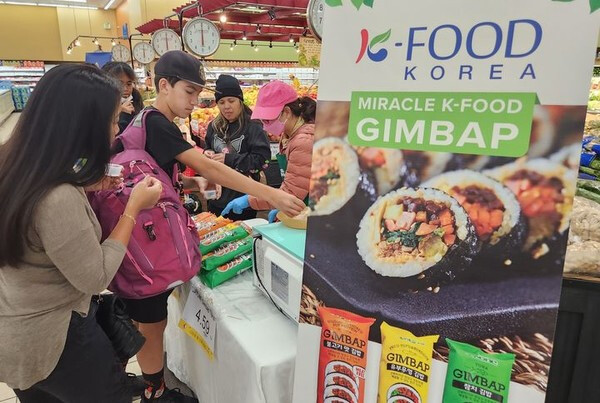
The US-China trade war is escalating, with both countries imposing additional tariffs on each other's goods. This is causing jitters in the global financial market, and South Korean food companies are no exception. They are concerned that the increased tariffs will make it difficult for them to export their products to the United States, which has become a major market for K-food.
According to a report by the Korea Rural Economic Institute, South Korea's agricultural and food exports to the US reached $1.59 billion in 2024, making it the largest export market for K-food. This is a significant increase from 2023, when the US was the third-largest market after Japan and China.
The most popular K-food exports to the US include instant noodles, prepared foods, beverages, baked goods, and kimchi. If the US extends the trade war to include South Korea, it will have a significant impact on the country's food industry.
Samyang Foods, the company behind the popular Buldak Bokkeummyeon (spicy chicken ramen), is one of the most vulnerable. The company's exports accounted for 77% of its sales in the third quarter of 2024, and the Americas, including the US, accounted for 28% of its overseas sales, making it the company's largest overseas market.
Samyang Foods is concerned that the increased tariffs will make its products more expensive in the US, which could lead to a decline in sales. The company is considering various options, such as raising prices for distributors or reducing its profit margins.
Other companies that could be affected include Lotte Wellfood and Orion. Lotte Wellfood exports popular snacks such as Pepero and Kkokkal Corn Chips to the US, and Orion exports Turtle Chips.
The increased tariffs could also make it more difficult for South Korean kimchi exporters to compete in the US market.
Soju companies are also concerned about the impact of the trade war. HiteJinro's US sales have been growing in recent years, and Lotte Chilsung's soju exports to the US have increased by an average of 46% per year over the past three years.
The South Korean government is closely monitoring the situation and is preparing to take action to minimize the impact on the country's food industry. The Ministry of Agriculture, Food and Rural Affairs is operating a task force to review the potential impact of the trade war on the agricultural and food sectors and to develop response plans.
The government is also committed to communicating with the agricultural and food industries to share information and address any concerns.
[Copyright (c) Global Economic Times. All Rights Reserved.]






























